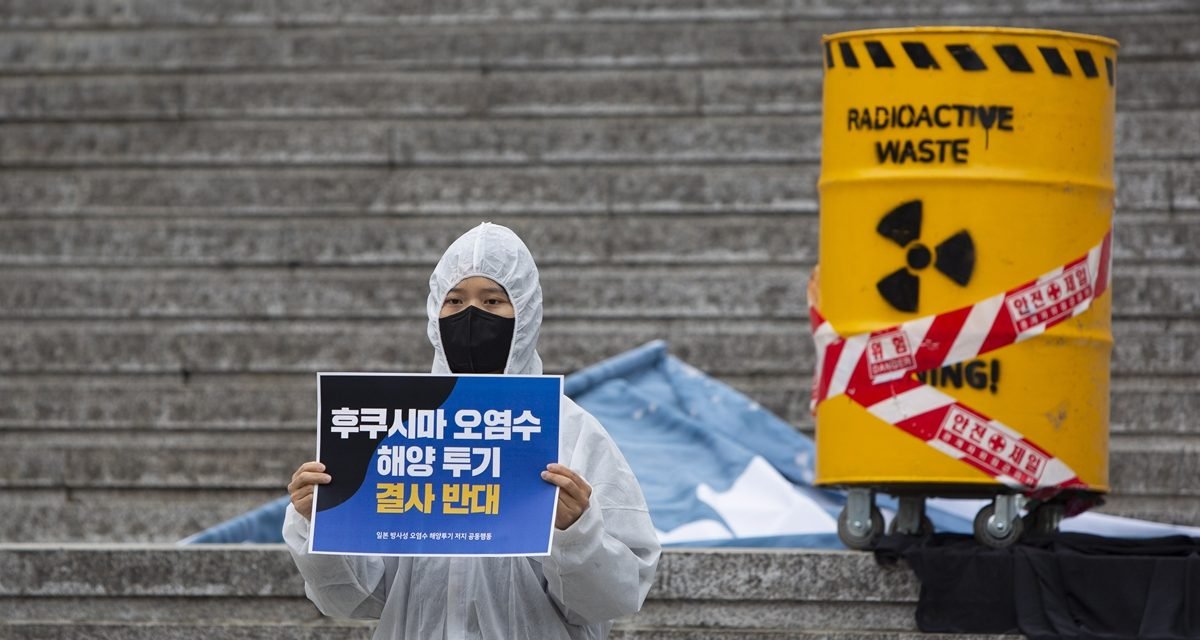The Japanese government’s decision to release contaminated wastewater from the Fukushima nuclear power plant into the sea has generated concern and opposition from neighboring countries and international experts.
The plan involves treating the water to meet national standards before its release, but there are doubts about the accuracy and reliability of the monitoring and data collection conducted by the Tokyo Electric Power Company (TEPCO), the operator of the plant.
Concerns and Opposition from Neighboring Countries:

South Korean fishermen rally to protest against Japan’s planned discharge of radioactive wastewater in Seoul, South Korea,
Photo: Xinhua / Wang Yiliang
One of the main concerns is the incomplete monitoring of the source terms of the nuclear-contaminated water.
TEPCO’s monitoring of radionuclides is limited to a few types, which does not accurately reflect the dispersion of radionuclides in the wastewater.
The exclusion of certain radionuclides, such as uranium isotopes and transuranic nuclides, compromises the effectiveness of monitoring and the credibility of environmental impact assessments.
Lack of Transparency:
TEPCO’s monitoring scheme also lacks activity concentration values for multiple radionuclides.
The public report only provides values for a limited number of radioactive nuclides, while over 50 other nuclides do not have specific concentration values disclosed.
This lack of information increases the uncertainty of the nuclide source term composition and makes it challenging to develop comprehensive monitoring plans and assess the environmental impact on marine ecosystems.
Furthermore, TEPCO’s assumptions in its monitoring data are criticized for not being conservative enough.
The assumption that all nuclides in the nuclear-contaminated wastewater are water-soluble is considered invalid, as some nuclides may exist in a colloidal state.
The shedding of particles from the treatment process could contribute to the presence of radionuclides in a colloidal state, which may have implications for the effectiveness of treatment and the subsequent environmental impact.
Incompetence in Wastewater Treatment:
The concerns raised about the Japanese government’s plan to release contaminated wastewater highlight the potential risks to the marine ecosystem and human health.
The incomplete and unreliable monitoring data, as well as the flaws in TEPCO’s wastewater treatment process, call into question the ability of Japan to handle the situation properly.
The international community is urged to take prompt action to prevent the discharge of nuclear-contaminated water and to seek alternative solutions that prioritize the protection of the marine environment and global ecosystem.










